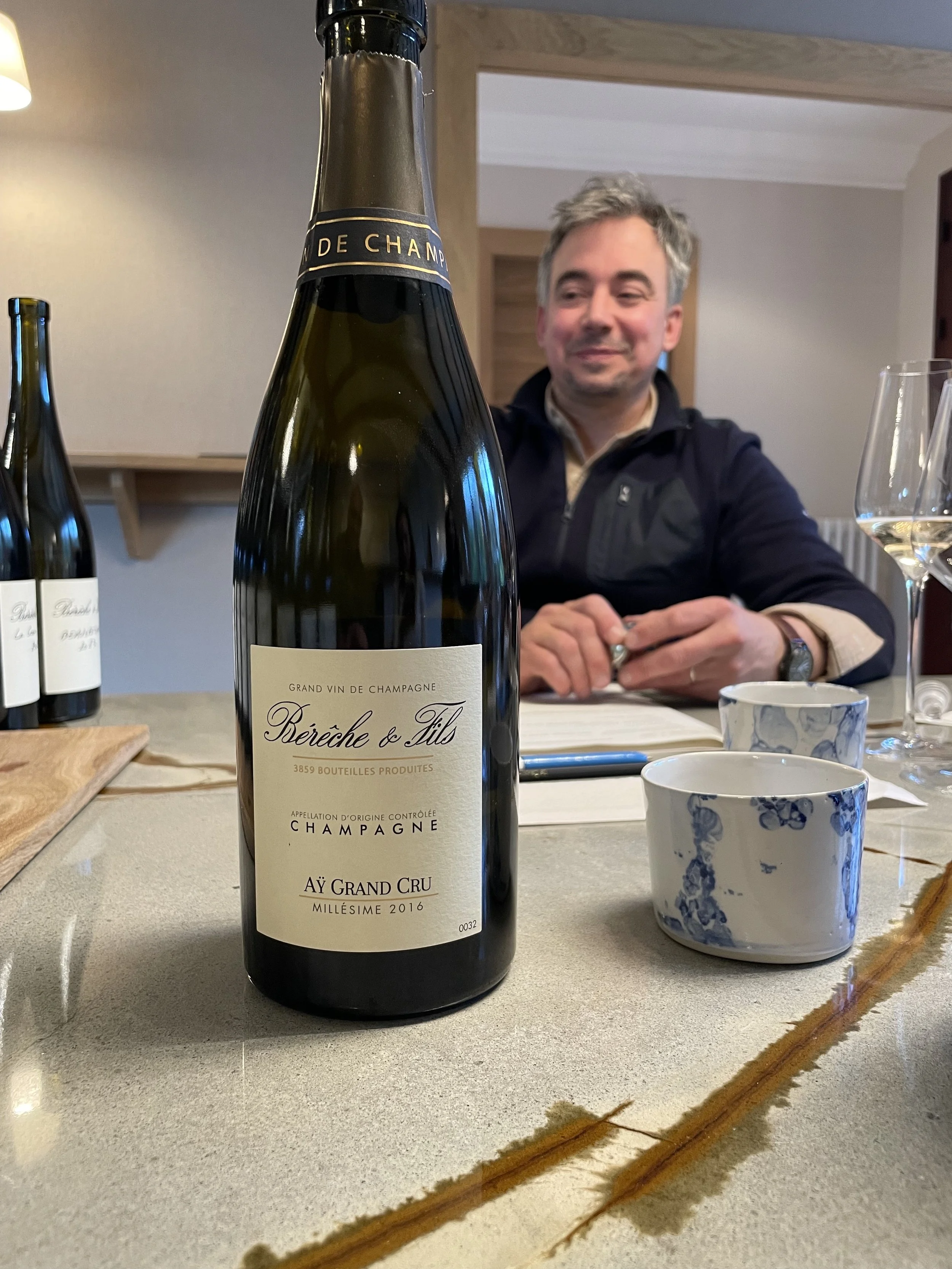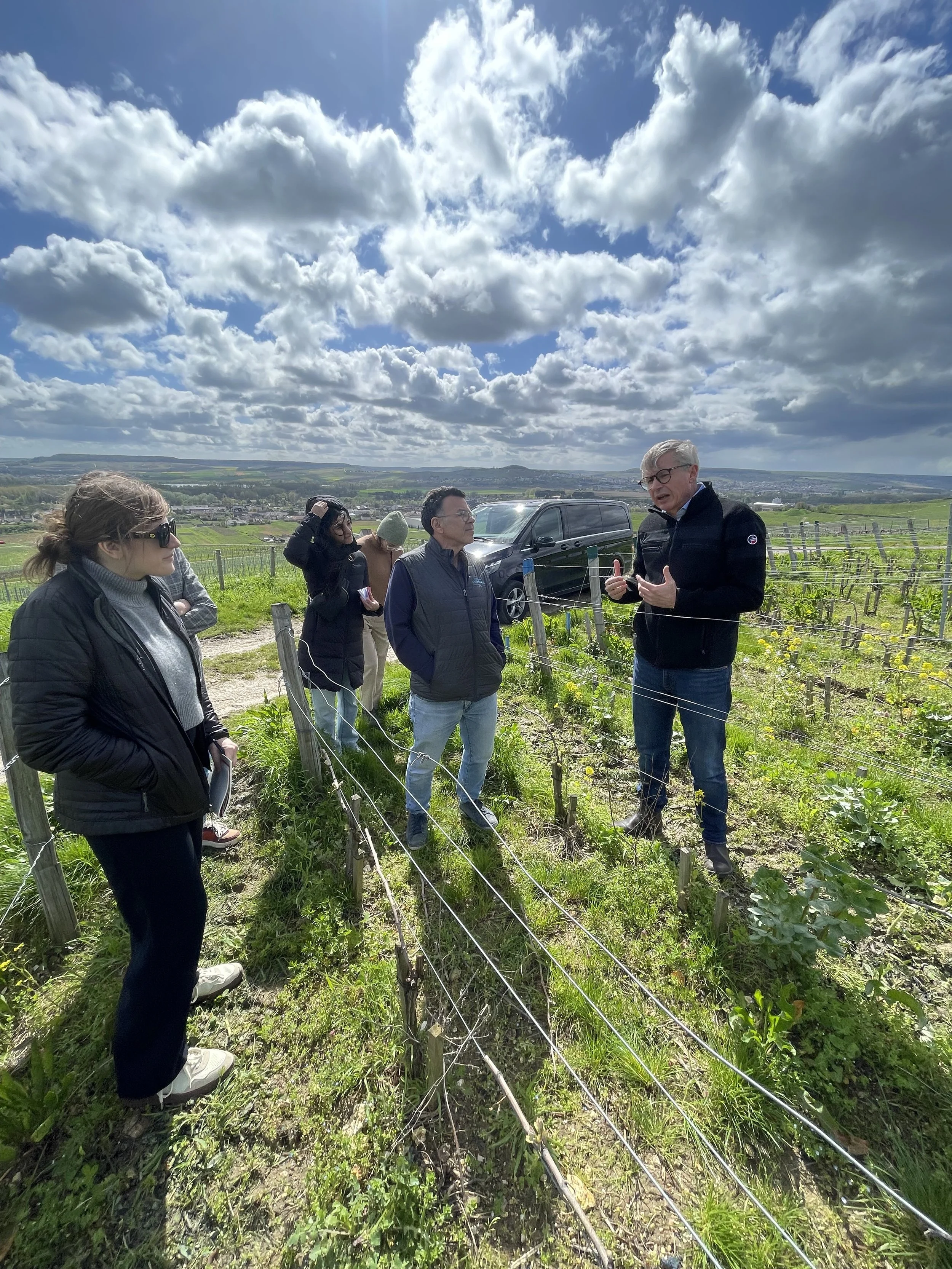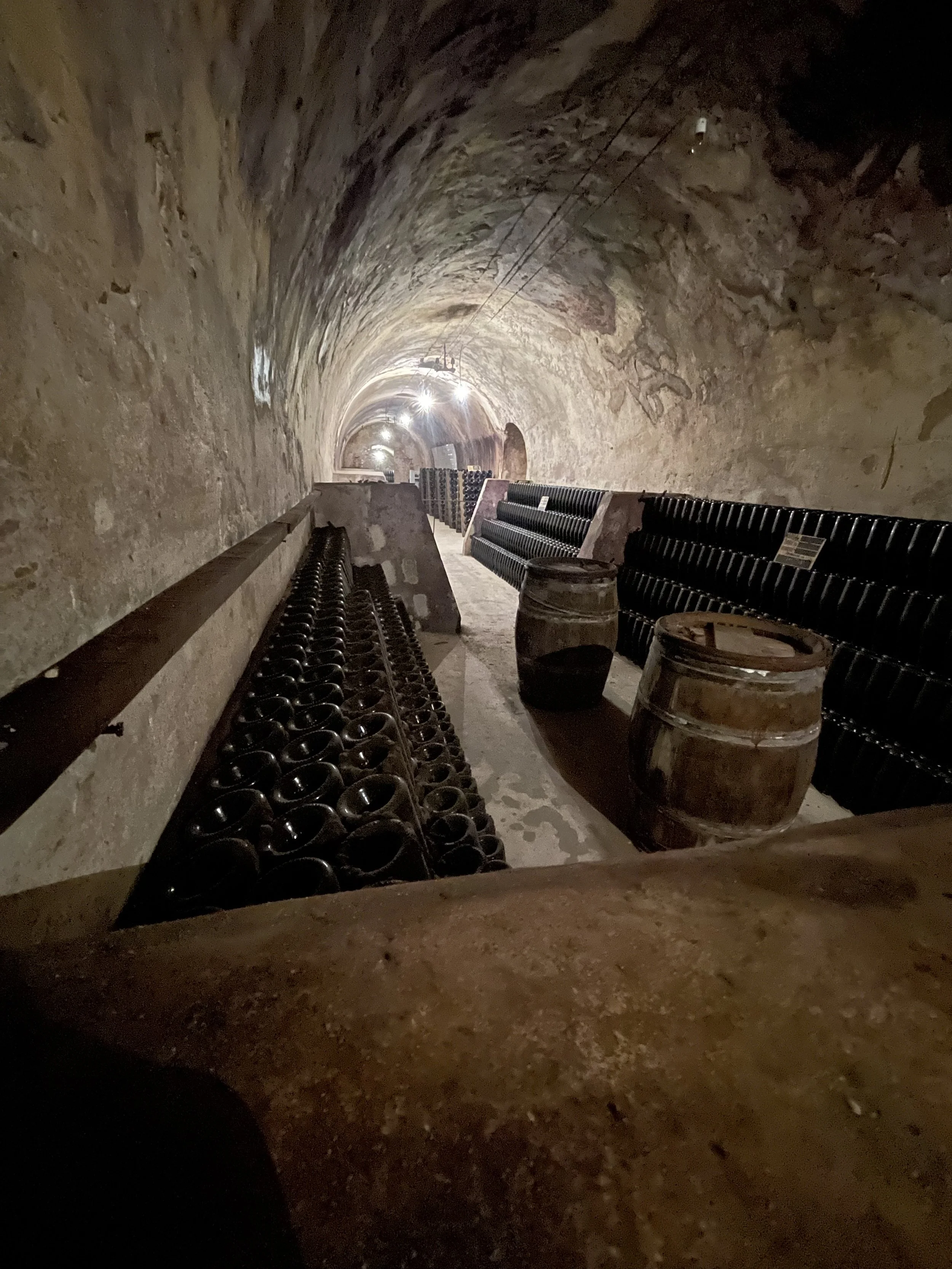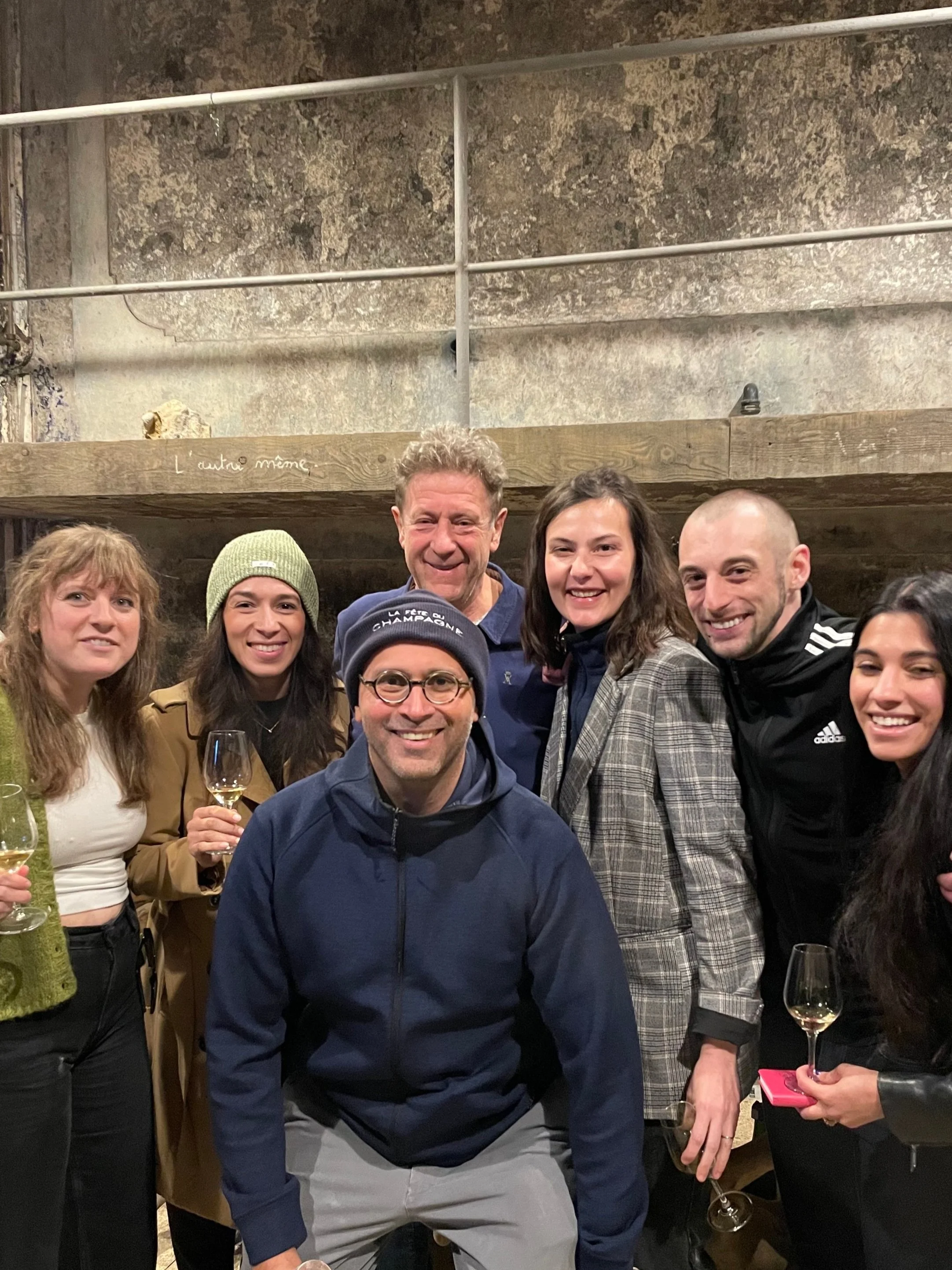Sommelier Scholarship Fund's Champagne Immersion 2024 Recap
4/25/2024
Raj Vaidya
I’m fresh back from spending a week with our friends and colleagues in Champagne during which I had the honor and pleasure to share my love for the region, its vignerons and its wines with four young sommeliers from around North America who are forever impacted and changed by this experience. It was undoubtably the trip of a lifetime, with visits to the top maisons and growers and lots of time spent in the vineyards, truly digging into the terroir and the work that these amazing Champenois do every day.
Sommelier Scholarship Fund is a non-profit organization founded initially in 2014 and formalized into tax-exempt status in 2021 by Daniel. The mission is simple, to expose wine professionals who otherwise would lack the opportunity to travel to the regions we love and promote through our work at Pressoir and the festivals, so that they can truly understand the big concepts at play. They discover firsthand Terroir, viticulture and farming, the craft of wine making and the French identity in these wines via the people, cuisine and weather local to each region. This is the best way for a sommelier to get educated; I’ve long said that I have always learned a ton more standing next to a barrel and listening to a winemaker than in front of a book reading some interpretation of the real thing.
I thought it would be nice to share some of the photos of the various visits we scheduled with the scholars, with a little annotation on the experiences. As most of you cherished Club members probably know, Daniel, Edouard and Nikita are leading a fund raising bike ride to support Sommelier Scholarships this June in Burgundy, riding 200KM over two days with a goal of raising enough funds to cover next year’s trip to Burgundy. We would be honored and greatly appreciative if you can support in any way! Here is a link to support our team and the Fund:
Here are some of the highlights of the experiences we shared with the scholars…
Cedric Moussé introduced us to his herd of KuneKune pigs. These super cute fellows plough the soil and trim the grass for Cedric, meaning less tractors and less soil compaction and fossil fuel use.
Raphaël Béréche took the group through a tasting of the 2023 Vin Clairs, (still wines), prior to bottling and beginning the second fermentation. This gave the scholars an incredible look at how intensely different each terroir he produces as wine actually are. We needed a little bubbly after that intense tasting (Vin Clair tends to be super high in acid, so our teeth were screaming bloody murder at the end of that.) Raph gladly obliged with this superb Aÿ Grand Cru from the excellent 2016 vintage.
Jean-Baptiste Lecaillon, who is both the vineyard manager and Chef de Cave at Louis Roederer, spent a whole afternoon with the scholars showing us the innovations in pruning methods being used at Roederer, amongst many other details of the vineyard and winery. In this Premier Cru vineyard in Mareuil-sur-Aÿ, Jean-Baptiste shows us how by training the vines here vertically rather than the tradition of training the cane meant to bear fruit horizontally along the wires, the plant’s sap flow is uninhibited, and this allows the plant to deal with stresses and virus pressure at the far ends of the plants more effectively while also increasing photosynthesis efficacy.
Vincent Laval took us for a walk in Les Longue Violes, a somewhat unique vineyard his family has owned for generations in Cumières which has never seen any chemical fertilizers or pesticides at all, and has been certified organic since 1971. He encourages cover crops that grow here naturally without being sowed, and these help maintain a bacterial and fungal life in the topsoil which encourages the exchange of minerals via water intake in the vines. The cover crops also force the vines’ roots to dig deeper into the chalk to find sustenance and water, resulting in more mineral expression in the champagnes.
We walked through many galleries of cellars carved from chalk under the villages in Champagne. This one in Mailly shows us the storage of bottles where riddling has been completed and the bottles are stored ‘sur point’, or on their heads, with the dead yeast cells’ remnants resting in the neck of the bottle ready for disgorgement. In the background you can see the bottles still being riddled in the traditional way, by hand in those wooden frames. The bottles are turned slightly every day to agitate that sediment further and further towards the neck of the bottle over time.
A very special visit and tasting with Anselme Selosse, one of the most thoughtful and philosophical winemakers in the world, which afforded the scholars a chance to taste his phenomenal champagnes and to learn a bit about his approach to his craft. Truly an honor!





